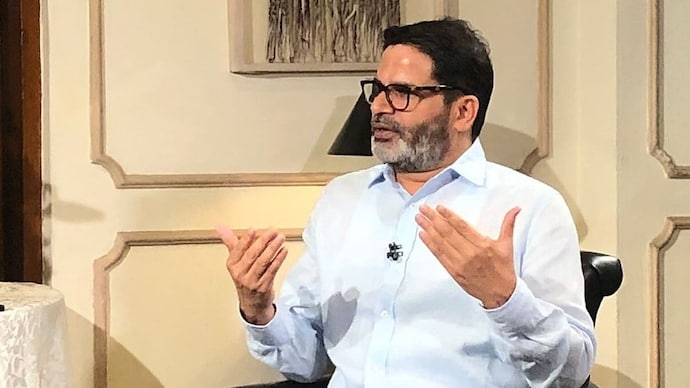In an exclusive interview with India Today TV, political analyst Prashant Kishor made a significant prediction for the 2024 Lok Sabha elections, stating that the Bharatiya Janata Party (BJP) is likely to secure around 300 seats. Kishor’s analysis suggests that despite the BJP’s ambitious claims, it is unlikely to achieve the 370-seat target set by Prime Minister Narendra Modi. However, Kishor is confident that the party will maintain a strong presence, securing a similar number of seats as in the 2019 elections.
Table of Contents
Prashant Kishor – BJP’s Performance Prediction
Prashant Kishor, a renowned political strategist, emphasized that while the BJP’s goal of 370 seats is unattainable, the party will not fall below the 270 mark. He predicts that the BJP will likely secure around 300 seats, echoing their 2019 performance. Kishor stated, “From the day PM Modi claimed that the BJP would secure 370 seats and the NDA would surpass the 400 mark, I said this was not possible. This is all sloganeering to boost workers’ morale.”

Regional Breakdown of Seats
Kishor’s analysis delves into the regional dynamics that will shape the BJP’s performance. He noted that in the year 2019 elections, the BJP secured 250 out of its 303 seats from the North and West regions. According to Kishor, these areas are crucial for the party’s success in the upcoming elections. “The key question is whether they are facing significant losses (50 or more seats) in these regions this time,” Kishor explained.
In contrast, Kishor expects the BJP to increase its seat count in the East and South regions, where the party currently holds around 50 seats. He anticipates a surge in the BJP’s vote share in these regions, predicting an increase of 15-20 seats. This growth in the East and South, combined with stable performance in the North and West, forms the basis of Kishor’s prediction of around 300 seats for the BJP.
No Widespread Anger Against PM Modi
A critical element of Kishor’s prediction is the absence of significant public anger against Prime Minister Narendra Modi. Kishor pointed out that despite some dissatisfaction, there is no widespread sentiment against Modi that would lead to a dramatic loss for the BJP. “Leaving aside the numbers game, let’s consider when a government loses. It happens when there is significant anger among the people against a party or its leader,” Kishor stated. He acknowledged that while a segment of society feels disappointed with Modi’s performance, this does not translate into widespread anger.
Also Read
UP Youth Casts 8 Illegal Votes for BJP, Election Officer Demands Re-poll
Impact on BJP’s Campaign Strategy
Kishor’s predictions highlight the importance of regional dynamics and public sentiment in shaping electoral outcomes. His analysis suggests that the BJP’s campaign strategy should focus on consolidating its strongholds in the North and West while capitalizing on emerging support in the East and South. The absence of significant anger against Modi also indicates that the BJP can leverage his leadership as a central theme in their campaign.
In a parallel development, Delhi Chief Minister Arvind Kejriwal has intensified his campaign efforts, supporting INDIA bloc candidate Kanhaiya Kumar in North East Delhi. Kejriwal took a swipe at BJP MP Manoj Tiwari, urging voters to defeat “Rinkiya Ke Papa,” a popular Bhojpuri song sung by Tiwari.
Kejriwal’s campaign emphasized the achievements of the Aam Aadmi Party (AAP) in improving education in Delhi. He criticized Prime Minister Modi for attempting to hinder his efforts, stating, “I have built 500 schools in Delhi. You (Modi) are the Prime Minister. You should have built 5,000 schools across the country to show your greatness.”
Kejriwal also addressed comments made by Union Home Minister Amit Shah, who referred to AAP supporters as ‘Pakistanis.’ Kejriwal retorted, “He said the supporters of the Aam Aadmi Party are Pakistanis. I want to ask him that the people of Delhi have formed the government by giving us 62 seats (and) 56 percent vote share. Are the people of Delhi Pakistanis?”
As the 2024 Lok Sabha elections approach, predictions and campaign strategies are intensifying. Prashant Kishor’s prediction of around 300 seats for the BJP underscores the party’s robust positioning, while Kejriwal’s vigorous campaigning highlights the competitive nature of the elections. Both developments reflect the dynamic political landscape and the crucial role of public sentiment and regional dynamics in shaping India’s electoral future.



